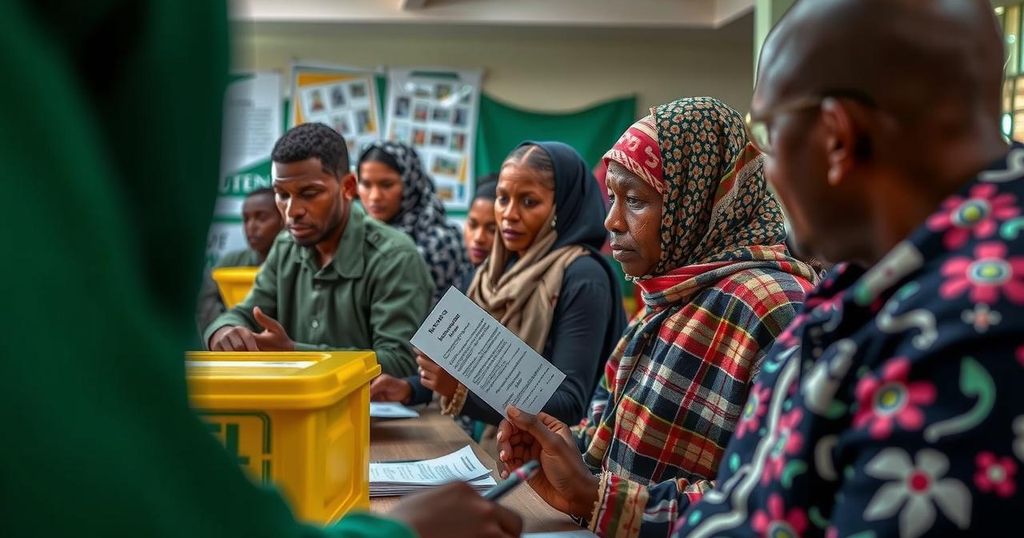Vote Counting Begins in Somaliland After Successful Presidential Election

Somaliland is counting votes following a peaceful presidential election with over one million registered voters. The NEC anticipates announcing results by November 21. Candidates, including incumbent President Muse Bihi Abdi, have promised continued democratic and economic progress. The election occurs amid tensions with Somalia over Ethiopia’s involvement in the region, complicating Somaliland’s pursuit of international recognition.
Vote counting is currently in progress in Somaliland following a calm and peaceful presidential election held on Wednesday. The Somaliland National Electoral Commission (NEC) confirmed that polling concluded at 6 p.m. local time, with over one million registered voters across approximately 2,000 polling stations. NEC Chairman Muse Hassan Yusuf indicated that vote counting commenced at the polling centers, subsequently moving to district and regional levels, with results expected to be announced by November 21. General Mohamed Adan Saqadhi, head of Somaliland’s police, reported that the election transpired without incident, emphasizing its democratic execution. There were three candidates competing in the election, including the incumbent President Muse Bihi Abdi of the ruling Peace, Unity and Development Party (Kulmiye), who is seeking a second term. The opposing candidates included Abdirahman Mohamed Abdullahi, known as ‘Irro’ from the Waddani party, and Faisal Ali Warabe representing the Justice and Development Party (UCID). Each candidate articulated commitments to fortifying democracy, advancing economic development, and pursuing international acknowledgment of Somaliland’s statehood. This election marks Somaliland’s fourth presidential election since the region declared independence in 1991, following the fall of the Siad Barre regime. Although Somaliland has not secured international recognition, it has established a functional government and institutions, consistently facilitating democratic transitions of power among rival parties and maintaining its own currency and military. The election occurs amidst heightened tensions between Somalia and Ethiopia over a contentious memorandum that could grant Ethiopia a long-term lease on a segment of Somaliland’s coastline in exchange for recognition of Somaliland’s independence—an issue that Somalia views as a direct affront to its sovereignty. The deal, signed on January 1, 2023, in Addis Ababa by Muse Bihi Abdi and Prime Minister Abiy Ahmed, has caused considerable uproar in Mogadishu, leading to the expulsion of Ethiopian diplomats in response to perceived intrusions into Somali territory. Diplomatic negotiations have yet to resolve the dispute, with the Somali government firmly opposing Ethiopian troop involvement in an upcoming African Union peacekeeping mission.
Somaliland has established itself as a breakaway region from Somalia since 1991, claiming independence without formal international recognition. This context of self-governance juxtaposes with ongoing tensions between Somaliland and Somalia regarding territorial integrity and legitimacy. The recent election underscores the region’s attempts at democratic governance while seeking to distinguish itself from Somalia. The political situation remains complicated by Ethiopia’s engagement with Somaliland, particularly through agreements that threaten Somalia’s claims over the territory and could influence regional stability.
In summary, the current Somaliland presidential election has thus far been conducted peacefully, reflecting the region’s commitment to democratic processes. The electoral outcome will play a crucial role in shaping future political dynamics and aspirations for international recognition. Continued tensions with Somalia, particularly regarding Ethiopia’s involvement, highlight the complex interplay of regional politics that could impact Somaliland’s quest for legitimacy on the global stage.
Original Source: www.voanews.com







